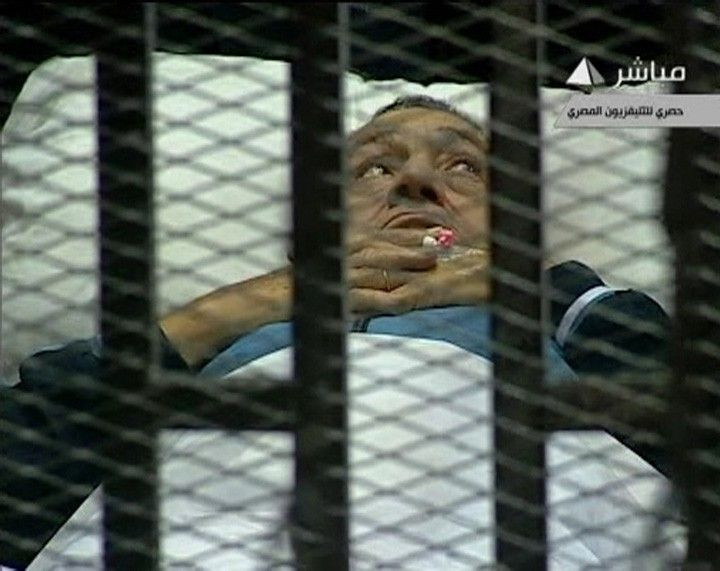Mubarak Lawyers Try to Pass the Buck on Murder Charges

The trial for ex-Egyptian President Hosni Mubarak resumed in Cairo on Wednesday. Mubarak, who stepped down in January amid massive demonstrations, faces murder charges for ordering state police to fire on unarmed protestors, as well as corruption charges.
He has pled not guilty.
Mubarak, who is 83 years old and suffers from various health problems, was apparently wheeled into the court on a medical gurney. Unlike the opening stages of the trial in September, all cameras and even all journalists were barred from the courtroom.
More than 800 people were killed in the government crackdown on the Tahrir Square protests in January and February. Mubarak stepped down on Feb. 11 and was placed under house arrest. In April, he was formerly arrested and confined to a hospital near the coastal resort city of Sharm el-Sheikh.
If convicted, Mubarak could be executed.
Wednesday was the first day in about three months that Mubarak had to appear in court. And even then, the day wasn't a long one. The hearing was stopping in the mid-afternoon and the trial was postponed until Monday.
According to The Daily News Egypt, an independent English-language newspaper, the trial was pushed back to give Mubarak's defense time to look over information on recent riots, as well as information about the amount of weapons used in terrorist acts in Egypt since 1997 until 2010, and the number of military uniforms, weapons and police vehicles that were stolen in recent clashes.
The defense will try to argue that the many clashes and protests that have occurred in Egypt in the past six months show that orders to shoot protestors came from military and other authorities, not the ex-president himself.
Mubarak's lawyers also plan on revealing documents from American and Israeli intelligence services that prove that January's Egyptian uprising was a foreign plot concocted to remove the president and perhaps divide the country into three parts. The court asked to see the documents as soon as possible. It would be surprising if these secret files indeed revealed a conspiracy, since Mubarak was seen as an ally of both the U.S. and Israel.
One of the key witnesses in the trial is Field Marshal Hussein Tantawi. As the head of the Supreme Council of Armed Forces, Tantawi is currently in charge of the Egyptian government and he is expected to know if Mubarak ordered protestors to be shot or if Mubarak was aware that unarmed civilians were being killed and beaten.
Tantawi testified in September but his comments have not been made public.
Also on trial are former Egyptian Interior Minister Habib El Adly, six government aids and two of Mubarak's sons.
© Copyright IBTimes 2025. All rights reserved.





















